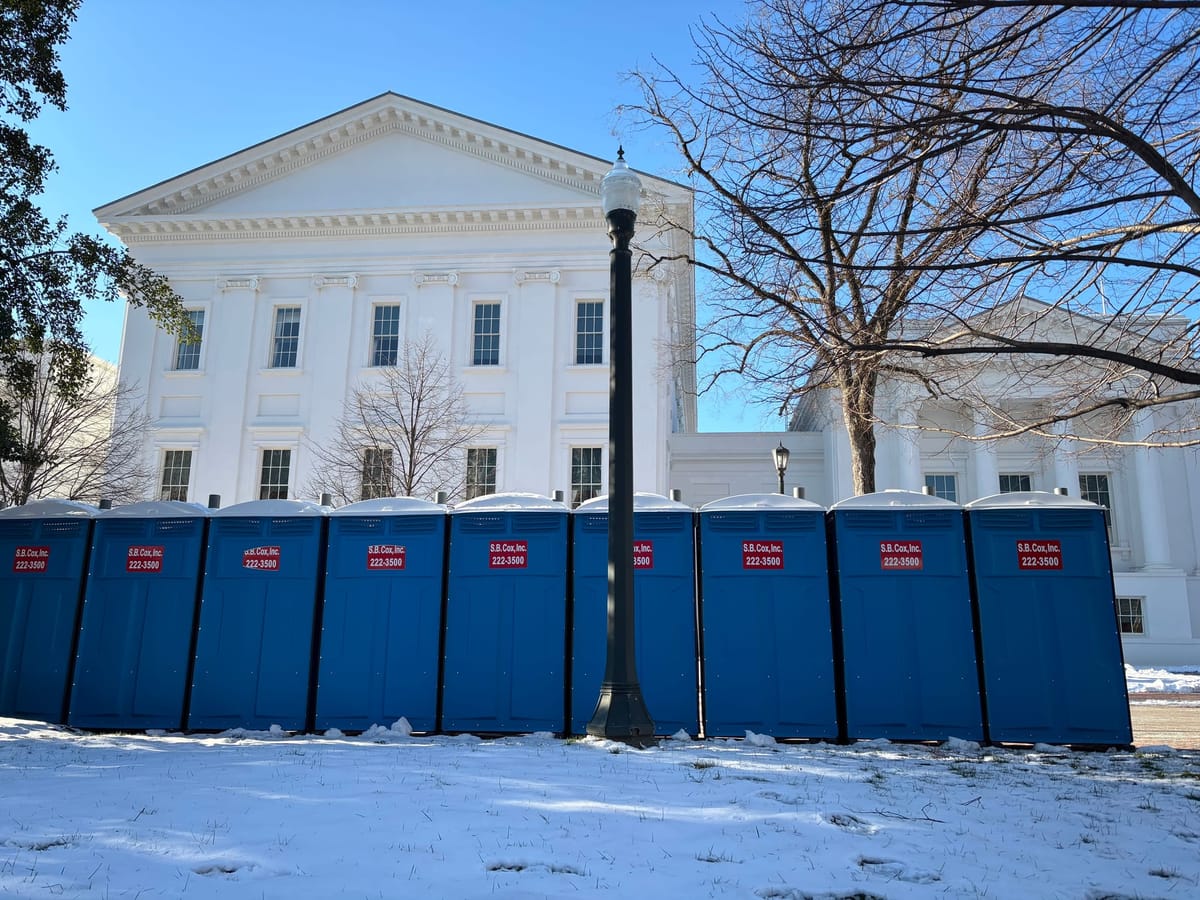State pushing for quicker alerts when water problems occur

With Richmond’s water crisis fresh in their minds, Virginia lawmakers recently approved legislation to require waterworks operators to swiftly notify state regulators about problems that could potentially leave their customers without clean water.
The bill approved by the General Assembly would require the Virginia Department of Health to be notified within six hours of a major problem like the one that occurred in Richmond earlier this year that left the city without usable water for nearly a week. Gov. Glenn Youngkin has recommended an even tighter window, suggesting the state should get notice within two hours.
The legislature will take up the governor’s recommendation when it returns to Richmond today.
Some sort of change to Virginia law appears likely after state regulators and multiple outside reviews pointed to a lack of speedy information-sharing as a problem that contributed to the Richmond water crisis.
The issue was already on lawmakers’ radar before the Richmond incident. But the outage in Virginia’s capital that disrupted state government made the topic even more relevant to the General Assembly by delaying the start of the 2025 session.
The initial legislative proposal was filed partly in response to water problems that occurred last year in central Virginia’s Orange County, where the Rapidan Service Authority told residents not to use the authority’s water because of an unusual smell.
In discussion of the bill, which passed with bipartisan support, several lawmakers pointed to the Richmond crisis as a reason to strengthen procedures on how problems are reported to VDH’s Office of Drinking Water.
“With stronger oversight, we can prevent such issues from escalating into full-blown crises,” Del. Destiny Levere Bolling, D-Henrico, said at a committee hearing as she described her version of the bill. “As we’ve seen, water system failures aren’t just inconveniences, they’re public health emergencies.”
Though the problems at the Richmond began with a power outage early on the morning of Jan. 6, VDH wasn’t involved until mid-afternoon, according to the timeline laid in an initial report to the city from a consulting firm hired to review the crisis.
When state drinking water officials were tossing around ideas for what needed to change after Richmond’s water crisis, one of them identified “quicker more proactive notification” as a priority.
“We could have possibly gotten the regional partners involved earlier to brainstorm how to maybe think of ways to attack an impending situation and minimize it as much as possible,” James Reynolds, the director of the Richmond field office, said in emails VDH released in response to public-records requests.
Similar proposals filed by multiple lawmakers from both parties ultimately led to the final passage of a combined bill that Youngkin has now tried to amend.
As passed, the bill would require waterworks owners such as Richmond’s Department of Public Utilities to notify the state of any “critical equipment failure or malfunction” or “contaminant release” within six hours of discovering the problem.
When Richmond’s water plant lost power on Jan. 6, VDH didn’t learn details of the situation until about nine hours later, according to a draft after-action report prepared for the city by the HNTB engineering firm. The health department reached out to the city around 2:50 p.m. that day after hearing about the situation from a “third party,” the report says.
Though current regulations call for notification within 24 hours of a water plant incident, the HNTB report says, it would have been best to notify regulators “as soon as it was evident that the event was going to impact plant production.”
“In an emergency event such as this one, VDH can help communicate with other utilities in the region, aid in emergency response and assist with communication to the public,” the report says.
Under the pending law, non-critical equipment failures and malfunctions would also have to be disclosed to the state on regular monthly reports as long as they’re serious enough to potentially disrupt water service and haven’t been immediately fixed through repair or replacement.
Richmond has been criticized by both the state and officials in neighboring counties for being slow to reveal the scope of the problems that emerged at the city’s water treatment plant on Jan. 6. The power outage led to flooding and widespread equipment failures that left the city and parts of the region without usable water for nearly a week.
As Virginia’s capital city, Richmond’s water outage also affected state government and the General Assembly itself, delaying the start of the legislative session by a few days as officials worked to restore water service.
“It is undeniable the amount of confusion and chaos that the issue did cause,” Del. Marcia Price, D-Newport News, said during a hearing on the bill.
The legislation doesn’t specify what penalties might apply to waterworks that don’t make the required reports, but the state drinking water office is empowered to take a variety of enforcement actions, including revoking permits, against waterworks operators that don’t follow state rules.
Though there was some back-and-forth over the bill’s specifics, lawmakers mostly applauded the effort to add more accountability and transparency to issues involving local water infrastructure.
Sen. Bryce Reeves, R-Spotsylvania, who sponsored a version of the bill in the Senate, told colleagues the situation in Orange County last summer led state officials to search for what might be contaminating the Rapidan River and causing the odor with the water.
As it turned out, he said, mineral oil was getting into the water at the treatment facility because multiple pumps had failed.
“What we found out after a thorough investigation and spending a lot of the state’s money, Reeves said, “was that we did not have full disclosure from our water authority about two pumps that failed.”






